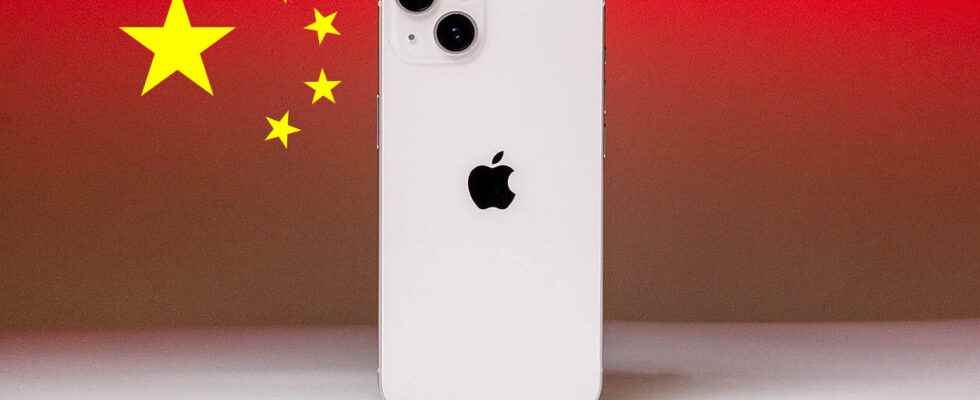The giant Apple could be led to introduce, for the first time in its history, the Chinese flash memory supplier Yangtze Memory Technology Co., according to financial analysts consulted by Bloomberg. A subsidiary of Chinese semiconductor giant Tsinghua Unigroup, Yangtze Memory Technologies Co. is the only Chinese company to master the development and production of 3D NAND memory, although the mass market currently belongs to other countries. : USA with Micron, South Korea with SK Hynix and Samsung, and Japan with Kioxia (offshoot of Toshiba).
At the source of this potential decision, comes an incident at Kioxia precisely: the Japanese, inventor of flash memory and which controls almost 20% of world production, suffered a major industrial problem. Chemical contamination of two of its production plants that it shares with Western Digital could cause it to lose up to 16 exabytes of production.
Read also: US curbs China’s memory chip ambitions (Nov 2018)
Yes, it’s a lot, it would represent ” about 10% of market (memory) consumption in one quarter “, according to an analyst. A semiconductor factory makes enormous use of chemistry, and it is enough for a product to be badly dosed, badly produced or badly stored to bring the entire production site to its knees. Apple being a huge consumer of memory, both RAM (random access memory) and NAND (flash storage), and a queen company in the supply chain, establishing a relationship with a new partner allows it to diversify.
Also see video:
Support a Chinese flagship (and buy favors from China?)
In the current context of shortage of semiconductors, the fact that Apple is studying another supplier is completely normal. The fact that he is Chinese is less trivial, especially in this period of Sino-American tensions. The fact that it is an outsider in the memory market is even less so.
China has still not shaken up the history of RAM and NAND in the world markets and has even experienced many setbacks in the creation of its production chains. Tsinghua Unigroup, parent company of Yangtze Memory Technology Co., which is particularly known for its ARM UniSoc chips, suffered last year from a serious debt problem – 26.16 billion euros!
Read also: One of China’s Semiconductor Flagships Seeks Rescuer to Escape Bankruptcy (July 2021)
By putting money into a subsidiary of this group, Apple would not only bail out its funds, but it would also allow it to ramp up in terms of production volumes. Even with modest volumes – a financial analyst consulted by Bloomberg speaks of “ 5% of total iPhone SE memory “, and ” between 3% and 5% of the future iPhone 14 “. This already tells us about the potential level of quality of the Chinese firm’s memory modules: they seem good enough to go in its future high-end terminal.
By supporting a Chinese flagship, Apple would thus contribute to the building of the “Made in China 2025” plan, the date on which the country wishes to control the production of certain key components. A “beautiful” gesture for Apple, for which China is the first workshop and one of the largest customers in the world. But which goes a little against the current trend which is to try to repatriate (and keep!) part of the production of semiconductors if not in the West, at least in friendly states.
Sources: Bloomberg (1), (2)
